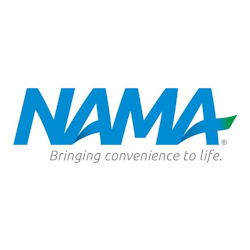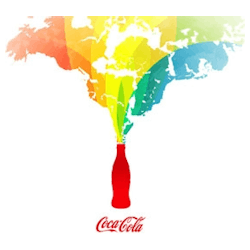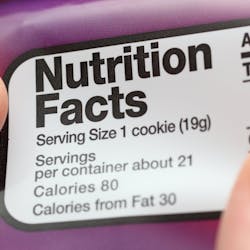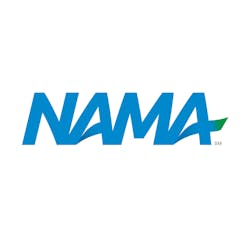As smart phones become omnipresent and social media Websites become focal points in people’s lives, all types of businesses are facing the need to adapt in order to meet consumers where they make their buying decisions. Vending operators, who service multiple points of distribution, will be affected by smart phones and social media as much as any business owners.
To address this changing market place, representatives of Coca-Cola Co. organized an educational session during the National Automatic Merchandising Association OneShow in Las Vegas titled, “Consumer Engagement Through Social Media.” In addition to Coca-Cola Co. representatives, the interactive session included someone from Google as well as technology consultants and two vending operators who have taken a progressive role in using social media.
Vending operators looking for honest answers to their questions were not disappointed.
Dan Avenick, director of vending strategy at the Coca-Cola Co., introduced the session by asking for a show of hands for people already using social media. After noting the large number of hands that went up, Avenick said social media is clearly not just for young people.
The growth of social media has caused Coca-Cola Co. and other consumer goods manufacturers to develop ways to use social media to build their brands, Avenick noted. But cognizant of the “what’s in it for me?” concerns of his listeners in the room, he acknowledged that monetizing social media at the point of sale is challenging.
“We’re on the same journey with you guys,” Avenick said. “This requires substantial investment in a business that’s not always possible.”
Nevertheless, Avenick said the vending industry is destined to be affected by social media, just as other types of retailing are being affected.
“Social is not just a stand-alone part of the business,” he noted.
Doug Bask, mobile brand strategy and global connections manager for Coca-Cola Co., then took the podium and said the Internet has become reorganize according to how consumers are using it. “The Web has been reorganized around you,” he said.
Consumers are reading reviews about products and services on the Internet before they make buying decisions. As an example, Amazon, the online book retailer, bases its book recommendations on Facebook likes.
For another example, Bask said Best Buy encourages its in-store sales people to give technical support on social media Websites when they are not assisting customers in a store.
Bask then addressed the relationship between mobile Internet and social media. He said mobile is the “needle” while social media is the “thread.” Half of all social activity today is occurring on mobile smart phones, he said.
Mobile marketing is not replacing other types of media as much as complementing them, he said.
“You have to recognize that TV is part of another story,” Bask said.
Switching his attention to hardware, Bask said near field communication (NFC) technology on smart phones is increasing and will augment the development of the mobile wallet. He said half of all mobile phones will be equipped with NCF technology by 2016.
Retail outlets will carry stickers indicating whether or not they accept mobile phone payments, Bask noted.
In time, loyalty rewards will be redeemed automatically at the point of sale. “It’s happening today,” Bask said.
Consumers will also be informed about special offers on social media Websites.
Tying social media to the vending industry, Bask said Coca-Cola Co., which has an extensive Facebook following, will be leveraging its Facebook following to vending machines.
“Participate in social retailing personally if you haven’t already,” Bask said.
He noted that Coca-Cola has extended its “My Coke” rewards campaign through social media.
Diana Pouliot, director of partner development for Google, agreed that vending will benefit from social media marketing campaigns. She said consumers are using smart phones to make buying decisions, both what to buy and where to buy. She said 74 percent of consumers who own smart phones make a buying decision after using their smart phone, of which 48 percent seek coupons.
Special offers and loyalty rewards will drive sales for all types of retailers, Pouliot said.
She said this will have a big impact on vending.
The smart phone enables a consumer to use a coupon without having to give the coupon to a store clerk. “You may be wanting to influence those customers before they come to your place of purchase,” Pouliot said.
Pouliot asked her listeners if they think offers on a smart phone will drive sales at their vending machines. She said operators should consider using QR codes on machines that will promote products and provide nutrition information.
The smart phone gives the merchant the opportunity to target consumers with additional offers after they have made a purchase.
“Technology is going to be able to bring this to vending,” she said.
Avenick then asked one of the vending operators on the panel, Chuck Olson, owner of CNC Vending in Stafford, Texas, to relate his use of social media. Olson said he offered giveaways via social media, but the sales lift was difficult to quantify. He said there was a 3.8 percent sales increase in the quarter he launched the offer, but it was hard to determine how much of the increase was due to social media since he was also installing more cashless readers.
Olson nonetheless has continued to use social media aggressively. “I’ve got customers telling their friends that we rock,” he said.
Customers also thank him for responding to product requests via social media.
Olson said he has received more than 100,000 Facebook impressions after gathering 250 Facebook followers. “This is the epitome of multi level marketing,” he said.
He said rewarding coupons via social media is a lot easier than rewarding tokens.
But social media does require attention. “You must respond when someone comments; immediacy is very important,” Olson said.
He said it was fun offering rewards to customers who picked the Super Bowl winner.
Avenick then turned to Tom Siciliano, who operates Integrity Associates LLC, a human resources consultant. Siciliano noted the way social media is being used for recruiting employees.
Siciliano said LinkedIn is a social media Website where people post their resumes. He said it is a cost effective way for business owners to find good employees. “You can really drill down to get people you are looking for,” he said.
Employers can also post job openings on LinkedIn. “Within a (LinkedIn) group, you can post jobs for free,” he said.
Craig Kushner, president of Monumental Vending in Beltsville, Md., related a Coca-Cola promotion he did with his vending machines two years ago. He said he was skeptical when Coke wanted him to offer a free drink for every nine beverages purchased. He included the offer on machines in 50 locations.
As a result, sales at these machines increased by 6 percentage points while sales decreased in all other machines.
Coke sales increased by 20 percent in these machines, Kushner said.







